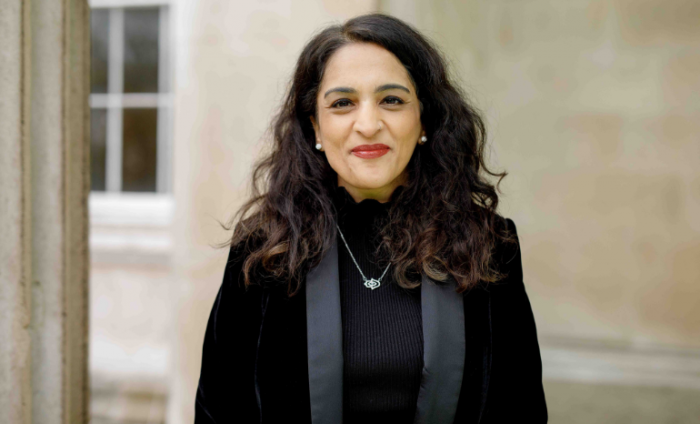
South Asian Heritage Month (SAHM) is celebrated annually in the UK from 18 July to 17 August, recognising the achievements and contributions of South Asian communities. The 2025 theme, Roots to Routes, honours the journeys of those with South Asian heritage, highlighting how their experiences have shaped who they are today and the impact they have made on wider society.
As part of UCL School of Management’s SAHM celebrations, we are spotlighting Professor Harveen Chugh, UCL MBA Programme Director, who reflects on her Indian heritage and how working in her father’s store first inspired her passion for business and entrepreneurship.
According to the HESA 2023/24 report, only 14% of UK professors are from Asian backgrounds, with women representing an even smaller proportion. In this blog, Harveen shares why representation of the South Asian community—and particularly South Asian women—is so vital.
can you tell us about your background?
My parents migrated from India to England in the early 1970s and built their home in London. My Dad owned a retail store where I spent a lot of time after school, so I would certainly say I learned about business from a young age such as sales and customer service.
A few years later, I started up my own business and carried out research in entrepreneurship, so I’m sure I carried some of the skills gained and curiosity about business with me.
tell us about your career
My career started off in the sciences with a focus on biology and bioinformatics, moved to startup biotech companies, and later progressed to entrepreneurship more widely. I have worked in academia, government, management consultancy and started my own business, so I have been fortunate enough to explore entrepreneurship through different lenses.
I’m proud to have empowered many entrepreneurs to get their business ideas off the ground through my teaching, coaching and mentoring. More recently, I have shifted focus to how the entrepreneurship community of educators and programme managers can develop our practice of coaching and mentoring entrepreneurs through the NCME (Network for Coaching and Mentoring Entrepreneurs).
why do you think that representation of the south asian community - and particularly south asian women - is so important?
For me it’s important, especially in academia, because there is very little representation of South Asian women. For example, how many academics do you see from the South Asian community? How many female academics? And how many female Professors from the South Asian community?
The perception sometimes still exists that the face of credibility or authority in academia is a white male and they are often called ‘Professor’ by students even if they do not actually have that title – where do those perceptions and beliefs come from?
So, the representation and visibility for me such as in this blog is of great significance - because I have earned my role as Professor at UCL, and believe I have a responsibility to play in changing some of those perceptions and beliefs.
To highlight just how vital representation is, I heard recently from a student who joined the UCL MBA and told me that seeing my picture on the website played a role in their decision to apply for and join the programme.
as the programme director of the ucl mba, do you think your south asian hertiage has played a part in your leadership style?
The Indian culture has been a big part of my upbringing, which is very much about building networks and communities, hospitality and care for others, and celebrating diversity. So I would definitely say that my leadership style of warmth, compassion and inclusion stem from these values.
I would also say they influence the UCL MBA’s focus on community with in-person immersions, our approach to small online classroom discussions and the personal approach we take with students on the programme. I hope this may inspire other South Asian women to bring their culture into their own leadership too.